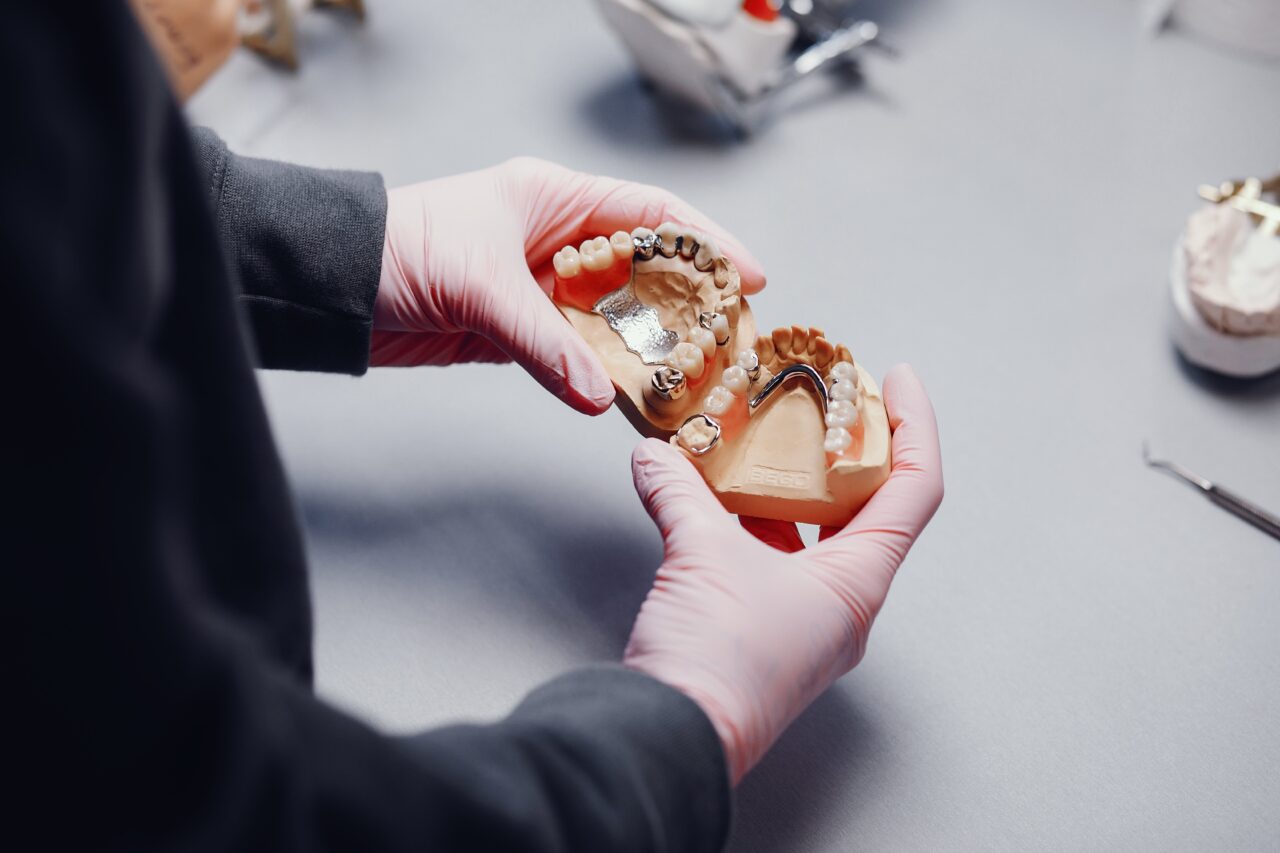Tooth loss can occur due to reasons such as decay, gum diseases, and more. This can lead to issues like compromised aesthetics and chewing functions in the mouth. To prevent such problems, dental prostheses are used to replace lost teeth. While dental prostheses are primarily employed to replace missing teeth, they can also serve purely aesthetic purposes for those who haven’t experienced tooth loss. All the dental prostheses we utilize in our clinic are crafted using materials that are compatible with oral tissues.
Why Are Dental Prostheses Made?
Creating dental prostheses to replace lost teeth serves specific purposes. These include preserving the health of remaining teeth and restoring lost chewing functions. Additionally, dental prostheses aim to rectify impaired speech resulting from missing teeth and to restore lost oral aesthetics.
Types of Dental Prostheses:
1 – Removable Dental Prostheses:
Removable dental prostheses can be taken out and put back by the patient. These prostheses are supported not only by remaining healthy teeth but also by the soft tissues within the mouth. They are customized based on the patient’s needs and the number of missing teeth. They can also be used when all teeth are missing.
Maintenance of Removable Dental Prostheses:
Regular maintenance is necessary for removable dental prostheses. For instance, they should be cleaned with a soft brush after every meal. If cleaned and used properly, they can be used healthily for a long time. When not in use, such as during sleep, they should be kept in a container of water. Neglecting maintenance can lead to unpleasant odors. Although removable dental prostheses are custom-fitted to the patient’s mouth, they shouldn’t be worn continuously for 24 hours.
Types of Removable Dental Prostheses:
Removable dental prostheses have their own subtypes, including: Palatal prostheses Implant-supported full prostheses Tooth-supported full prostheses Partial prostheses Precision attachment prostheses Removable partial prostheses
2 – Fixed Dental Prostheses:
The most preferred prosthesis type for tooth loss is fixed dental prostheses. During their application, some existing teeth need to be modified to support the prosthesis. Despite initial concerns from some patients, the benefits of fixed dental prostheses for tooth loss become evident when considering their advantages. Fixed dental prostheses substantially facilitate chewing functions and address speech issues caused by tooth loss. Moreover, they support cheeks and lips, contributing to facial aesthetics.
Maintenance of Fixed Dental Prostheses:
Like removable dental prostheses, fixed dental prostheses require meticulous care. With proper and regular cleaning, they can be used for many years. Regular brushing (at least three times a day), flossing, and maintaining oral hygiene are essential, regardless of how biocompatible the materials are. Despite the use of biocompatible materials, fixed dental prostheses, when placed in the oral cavity, are still foreign substances that require diligent cleaning to ensure oral and dental health.
Types of Fixed Dental Prostheses:
Various types of fixed dental prostheses include:
- Crown and bridge prostheses
- Metal-ceramic prostheses
- Full metal prostheses
- Zirconium-based ceramic prostheses
- Reinforced ceramics



